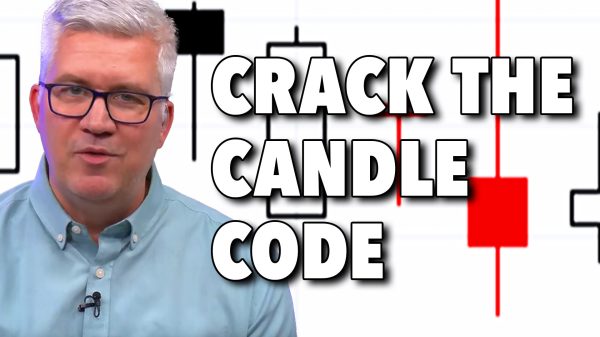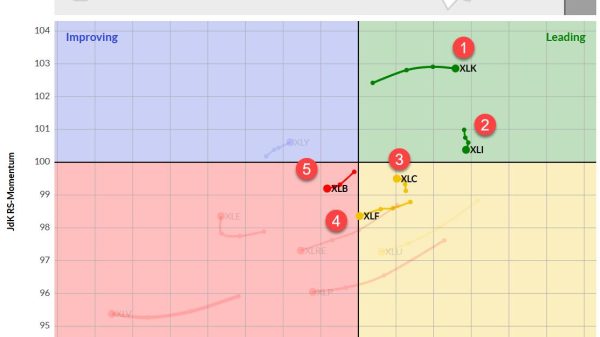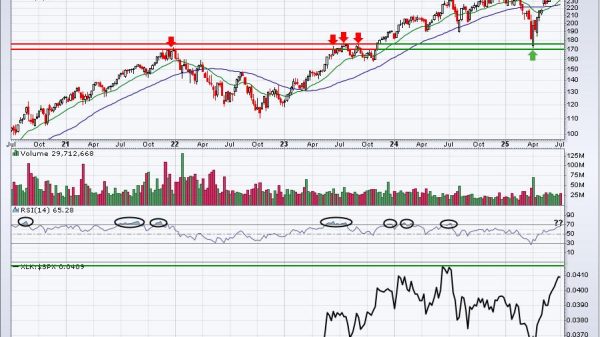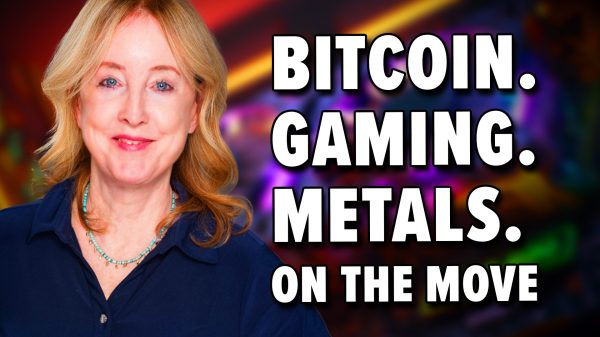Mt. Gox: From Owning Bitcoin Trades to Bankruptcy
Mt. Gox was a Shibuya, Tokyo, Japan-based bitcoin exchange. When first launched in 2010, it managed more than 70% of all bitcoin (BTC) buys and sales globally. However, in early 2014, it abruptly closed due to revelations that it had been involved in the loss or theft of hundreds of thousands of bitcoins, valued at hundreds of millions of dollars at the time.
Programmer Jed McCaleb had the idea to create a website where users of the tradable card game service Magic: The Gathering Online could trade “Magic: The Gathering Online” cards just like stocks towards the end of 2006. He bought the domain name mtgox.com, which stands for “Magic: The Gathering Online eXchange,” in January 2007. The service went live for about three months after going into beta release in late 2007. McCaleb decided it was not worth his time and moved on to other projects. He used the domain name again in 2009 to promote The Far Wilds, his card game.
After reading about Bitcoin on Slashdot in July 2010, McCaleb concluded that the Bitcoin community required an exchange to facilitate the trading of Bitcoin and fiat money. Soon after, launched on the spare mtgox.com domain name, Mt. Gox’s exchange and price quoting service went live on July 18.
Due to the disappearance of approximately 850,000 bitcoins, Mt. Gox filed for bankruptcy protection from creditors in February 2014, shut down its website and exchange service, and ceased trading. The company started the liquidation process in April 2014. Initially unclear were the reasons for the disappearance—theft, fraud, poor management, or a combination. However, 200,000 bitcoins have been found. WizSec, a Tokyo security firm, concluded that some or all of the lost bitcoins were stolen from the Mt. Gox. They presented new evidence in April 2015.
The Rise and Dominance Of Mt.Gox
McCaleb decides to use the domain Mt.Gox as a bitcoin exchange in late 2010. His plan was straightforward: he would offer a single location for Bitcoin buyers and sellers to interact. However, McCaleb soon received wire transfers for tens of thousands of dollars. Sensing he was over his head, he sold the website to Karpeles, a bitcoin enthusiast, foodie, and enthusiastic programmer who went by the username Magicaltux in online forums.
Karpeles quickly got to work rewriting the back-end software for the website, eventually making it the most widely used Bitcoin exchange in the world. The website was offline for several days in June 2011 due to a hack. Roger Ver and Jesse Powell, two Bitcoin enthusiasts who assisted the company in responding to the hack, claimed that Karpeles was oddly casual about the situation. However, Karpeles and Mt. Gox eventually fulfilled their commitments and gained a standing as trustworthy Bitcoin community members. Similarly, several Bitcoin businesses have experienced hacking and have lost client money. Most of them went out of business because of it; however, Mt. Gox and Karpele didn’t shut down.
Insider of Mt. Gox, Karpeles, who held the largest stake in Mt. Gox, looked to have acquired massive wealth as bitcoin prices surged, rising from $13 at the beginning of 2013 to over $1,200 at their peak. Mt. Gox did not provide employee equity, and at the time of the latest hack, the company had amassed over $50,000 million in bitcoins. Based on a leaked Mt. Gox business plan, Karpeles owns 88% of the company and McCaleb 12%.
Karpeles was a significant figure in the bitcoin community. He was a board member of the Bitcoin Foundation. This non-profit organisation developed and advocated for Bitcoin software and had contributed 5,000 bitcoins to its founding (he has since resigned).
The Start of Mt. Gox’s Downfall
The Mt. Gox bitcoin exchange announced on June 13, 2011, that 478 accounts had had approximately BTC 25,000 (or US$400,000) taken away from them. On Friday, June 17, a leaked copy of Mt. Gox’s user database, linked to auto36299386@hushmail.com and signed by ~cRazIeStinGeR~, was discovered and sold on Pastebin. Reports indicated that thieves continued stealing Bitcoins from Mt. Gox accounts that day.
On June 19, a hacker supposedly used qualifications from a compromised computer belonging to a Mt. Gox auditor to transfer a large amount of bitcoins to himself illegally. This led to a series of fraudulent trades. It caused the nominal price of a bitcoin to drop to one cent on the Mt. Gox exchange fraudulently.
The hacker created a massive “ask” order at any price by selling them all nominally using the exchange’s software. The price quickly adjusted to the accurate user-traded value. Affected accounts included those worth more than $8,750,000. Mt. Gox pre-announced and transferred 424,242 bitcoins from “cold storage” to a Mt. Gox address in Block 132749, demonstrating that Mt. Gox remained in possession of the coins.
Roughly two dozen transactions recorded in the blockchain (Block 150951) in October 2011 sent a total of 2,609 BTC to invalid addresses. They lost these bitcoins because they could never assign them a private key. Nodes on the network wouldn’t reject the transactions, uncovering a protocol weakness, while the standard client would confirm such an error.
Issues About Processors of Most Bitcoin Trades
On February 22, 2013, Dwolla, a payment company, temporarily blocked some accounts due to new anti-money laundering requirements it had introduced. As a result, Dwolla cancelled transactions from Mt. Gox to those accounts. The money never returned to the Mt. Gox accounts.
The bitcoin “blockchain,” or transaction log, briefly split into two separate logs in March 2013 with different acceptance policies. For a short while, bitcoin deposits were suspended on the Mt. Gox exchange. As the event happened, bitcoin prices dropped by 23% to $37 briefly before rising to $48 in the following hours. The website had grown to become the biggest Bitcoin exchange and intermediary worldwide by April 2013 and continued to do so into 2014. It managed over 70% of all bitcoin trades worldwide at that time. Due to the sharp price rise, Mt. Gox halted trading for a market cooling period on April 11 and 12.
After trading resumed, the value of a single bitcoin dropped to $55.59 before rising above $100. According to Bitcoin Charts, Mt. Gox traded 150,000 bitcoins every day around the middle of May 2013.
Alleging a breach of contract, CoinLab filed a $75 million lawsuit against Mt. Gox on May 2, 2013. In February 2013, the two companies established a partnership wherein CoinLab managed all of Mt. Gox’s North American businesses. According to CoinLab’s lawsuit, Mt. Gox denied it permission to transfer its current US and Canadian clientele from Mt. Gox to CoinLab.
The Effect on Trading
On May 15, 2013, the US Department of Homeland Security obtained a warrant allowing them to take money from the account of Mt. Gox’s US subsidiary with Dwolla. According to the warrant, the US Financial Crimes Enforcement Network (FinCEN) had yet to grant the subsidiary a license to operate as an unregistered money transmitter in the US. Instead, US Immigration and Customs Enforcement, an investigator branch of the Department of Homeland Security, claimed this. DHS took over $5 million from the subsidiary between May and July.
On June 20, 2013, Mt. Gox stopped accepting withdrawals in USD. Mt. Gox came under pressure from Mizuho Bank’s Tokyo branch to close its account, which handled its transactions. Despite announcing on July 4, 2013, that withdrawals had restarted, very few USD withdrawals were successful by September 5, 2013. On August 5, 2013, Mt. Gox reported significant losses from crediting deposits that hadn’t fully cleared. Also, it halted new deposits until completing the fund transfers.
The Issue of Trading Suspension in 2014
In February 2014, there was an increase in customer complaints regarding lengthy delays, as evidenced by the over 3,300 posts in a thread on the Bitcoin Talk online forum. All Bitcoin withdrawals from Mt. Gox were stopped on February 7, 2014. On February 10, 2014, the company released a press release claiming that transaction malleability caused the problem: “There is a bug in the Bitcoin system software that allows someone to use it to change transaction details, giving the impression that bitcoins were not sent to a wallet when they were. As a result, withdrawal requests would be delayed while the company sought a clear technical view of the currency processes.”
In February 2014, Mt. Gox issued another press release detailing its security measures. They suspended withdrawals from Mt. Gox while rival exchanges resumed operations. CEO Mark Karpelès declined to comment on customer concerns in an email interview with the Wall Street Journal. He did not specify a date for resuming withdrawals and mentioned potential new daily and monthly withdrawal limits if allowed.
Consequence of the Suspension
When all withdrawals were still suspended on February 20, 2014, Mt. Gox released a new statement but did not specify when they would be allowed to resume. Mark Karpelès, the CEO of Mt. Gox, resigned from the Bitcoin Foundation board on February 23, 2014. On the same day, the business deleted every tweet from its account.
On February 24, 2014, Mt. Gox suspended all trading, followed by its website crashing hours later, showing a blank page. An alleged internal crisis management document leaked. This revealed Mt. Gox lost 744,408 bitcoins in an unreported theft, rendering the company allegedly insolvent. Shortly before Mt. Gox’s website crash, six other major Bitcoin exchanges issued a joint statement severing ties with the company. During the Mt. Gox crisis from February 1 to March 31, 2014, the value of Bitcoin plummeted by 36%. The US Department of Justice identified Alexander Vinnik, owner of the BTC-e exchange, as a suspected key figure in laundering Mt. Gox’s stolen bitcoins.
Bankruptcy Claim In 2014
Mt. Gox reported that it had liabilities of approximately 6.5 billion yen ($65 million) and assets of 3.84 billion yen when it filed for mini sensei, or civil rehabilitation, in Tokyo on February 28, 2014, allowing courts to look for a buyer.
The business reported a loss of about 100,000 of its own bitcoins and approximately 750,000 bitcoins belonging to clients. When reported, this was roughly 7% of all bitcoins, valued at approximately $473 million. Mt. Gox accused hackers and stated there was a high chance that the bitcoins were stolen. They immediately started looking for the missing cryptocurrency. Chief Executive Karpelès stated that there will be more opportunities for fraud due to technical difficulties. Along with these, clients also sued Mt. Gox.
What Happened After The Bankruptcy Claim
Mt. Gox filed for bankruptcy protection in the US on March 9, 2014, to temporarily suspend US legal proceedings brought by traders who claimed the bitcoin exchange business was a fraud. On March 20, 2014, they announced on its website that it had found 199,999.99 bitcoins. These were in an old-fashioned digital wallet used before June 2011, valued at approximately $116 million. As a result, the company’s total loss of bitcoins dropped from 850,000 to 650,000.
According to their attorneys, on April 14, Karpelès ignored a FinCEN subpoena and skipped a Dallas court deposition. On April 16, 2014, Mt. Gox requested permission from a Tokyo court to liquidate. Therefore abandoning its intention to rebuild under bankruptcy protection.
By May 2016, creditors had demanded payment, claiming they had lost $2.4 trillion when the company filed for bankruptcy. They claimed to have more than $500 million in assets in the weeks leading up to its bankruptcy. However, the Japanese trustee in charge of the case stated that Mt. Gox had only left $91 million to give to claimants. Until then, the trustee had incurred $5.5 million in interim legal and accounting expenses, which creditors would eventually cover. The trustee, Kobayashi, stated in March 2018 that enough Bitcoin had been sold to pay off creditors’ claims.
On Mt. Gox News, Bitcoin Threatens $60K in 2024
The trustee of the defunct Mt. Gox announced the start of returning over 140,000 BTC to customers affected by the hack. This caused Bitcoin to decline in cryptocurrency prices on Monday.
As of the time of writing, the price of Bitcoin was $60,700, down over 5% on the previous day and at its lowest point since early May. Ether (ETH) and the larger CoinDesk 20 Index saw decreases of about the same magnitude.
Today’s sellers are careful of the impact of over 140,000 bitcoins flooding the market in under a month. For perspective, this amount is less than the 167,375 bitcoins held in the Fidelity spot bitcoin ETF.
The post Mt. Gox: From Owning Bitcoin Trades to Bankruptcy appeared first on FinanceBrokerage.
























